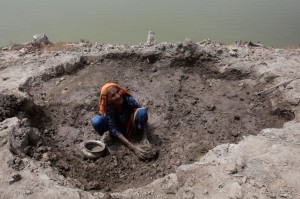Governmental bodies have been meeting any attempting to resolve climate change issues. The Rio Conference, and the Kyoto and Copenhagen summits were three of such meetings. Each had varying degrees of success. In Rio, a ‘remarkable set of recommendations in the form of Agenda 21’ (Davis, 1.3) were issued. These recommendations ‘spelled out the need for a substantial transfer of economic and technical resources from the industrialized countries to developing countries and the active involvement of diverse types of people in the pursuit of sustainable development’. Also importantly, two binding treaties were formed in Rio, ‘the UN Convention of Biodiversity, a treaty that bound its signatories to protect species habitats around the world’ and ‘the UN Framework Convention on Climate Change UNFCCC)’, which was ‘the first international treaty on climate change’ (Davis 1.3).

Image via unfccc.int
The Kyoto Protocol, organized in 1997, had the UNFCCC declaring a ‘timetable for reducing emissions’ (Davis 1.3) by the way of a Cap and Trade system. As of today, it has not had great success with many countries, including Canada, experiencing rising emission rates.
The Copenhagen summit was organized in 2009. The aim of the conference was to ‘come up with binding CO2 reduction targets for both developed and developing countries’ (Davis 1.3). Once more, there has not been great success, and there is a new issue looming – the concern over environmental conflict. There is anxiety that we will be seeing an increase in global conflicts which ‘have their roots in environmental crises, as people run out of food and water, or lose their homes to environmental disasters.’ These people, termed as ‘Environmental Refugees’, are a heavy pressure on governments not suited to deal with their level of poverty and depravation.

Image via BixRex on Reddit.
One can now understand why it is easy to claim that climate change is the most serious issue of our time. For all the talk, there appears to be very little action. Throughout history, humans have done as they pleased to reap immediate benefits rather than take long term goals into consideration. I will be reviewing main themes from the modules (Agriculture, Energy, and Cities) to try to gain an understanding to why people refuse to/resist change even when they are aware they are putting the whole planet in crisis with their actions.
Bibliography
Davis, Brandon. “Module 1.” The University of British Columbia – Global Environmental History, 2011. Web. 05 August 2011.











